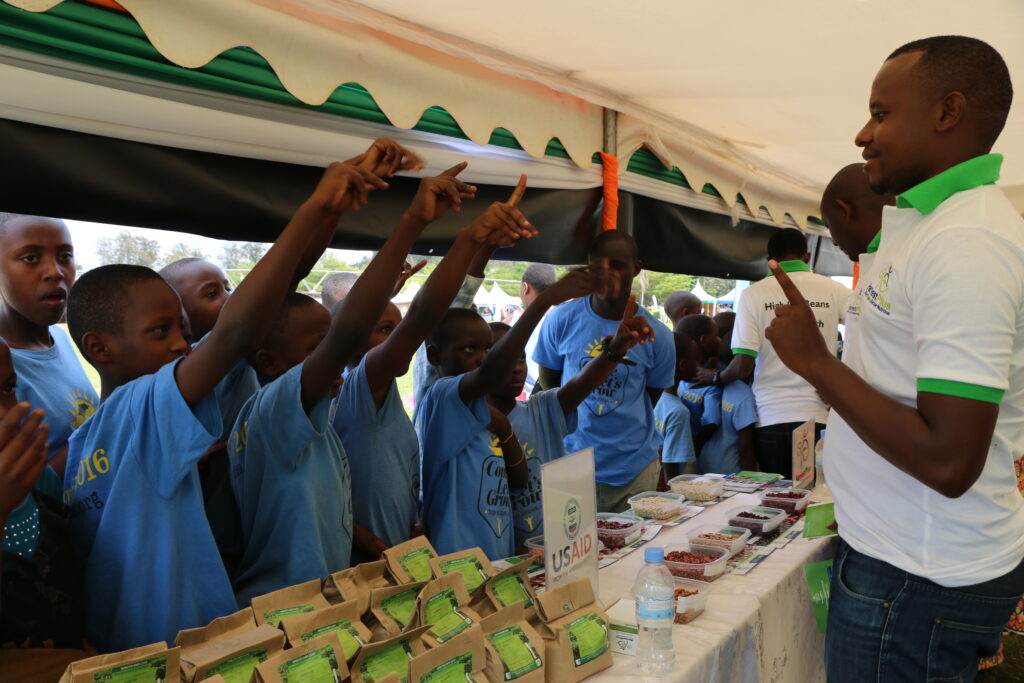HarvestPlus and the International Potato Center (CIP) showcased biofortification technologies under the One CGIAR Rwanda banner at the 2017 Agriculture Trade Fair held in Kigali, Rwanda from June 22-June 27.
This year’s theme was, “Adopt Climate Resilient Technologies to Improve Farmer Livelihoods,” focusing on the effects of climate change.
HarvestPlus and CIP, global leaders in biofortification, joined forces with their Rwanda partners to showcase drought tolerant iron bean varieties, which can withstand heavy rains and crop diseases.
Over 1,000 visitors–including people from Rwanda’s agricultural sector and government–stopped by the HarvestPlus and CIP booth to engage in lively discussions about the benefits of high iron beans and vitamin A sweet potatos. Afterwards, many headed straight to the agrodealers and retailers to purchase biofortified beans, highlighting the link between farmers and market in Rwanda’s vibrant value chain.
One happy farmer and consumer is Murebwayire Beatrice, a mother of three children, who said that she was unaware that she was growing the biofortified beans. At the fair, she learned about the nutritional benefits her high iron beans were providing to her children and large extended family.
Mfitumukiza Faustin, president of a farmer cooperative called COOPCUMA, told us that the show helped them to get the word out to farmers about where to get farm inputs, especially for biofortified beans.
Muhayimana Laurence, a farmer and a mother of two children, said that she was happy to learn that biofortified beans are rich in iron, important for mothers and young children. She was delighted to learn that farmers are already growing, selling and consuming biofortified beans.
HarvestPlus and CIP held two cooking demonstrations where 70 children were fed a delicious and nutritious meal of biofortified iron beans and vitamin A sweet potatos. The meals were declared a success and the families were given a kilogram of high iron beans to take home.
CIP displayed new technologies in post-harvest handling and storage, a critical stage in crop production that can make or break a farmer’s livelihood.
Financial institutions and seed companies rounded out the main players in Rwanda’s value chain.
However, it was a farmers first event, linking farmers to new technologies that could increase their livelihoods and improve the health of their families through better crops and better nutrition.
